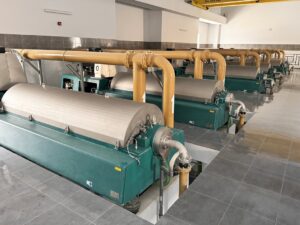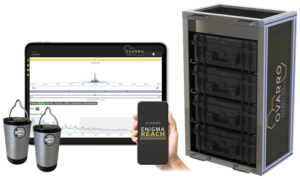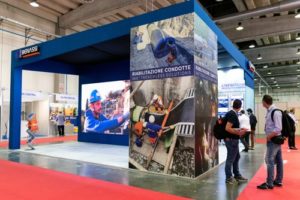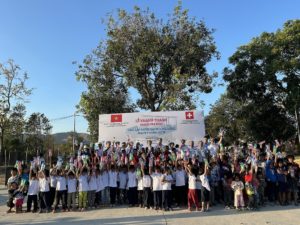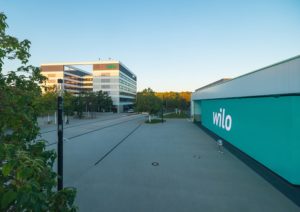Tsurumi Pumps Thrive in Toxic Environments
Tsurumi pumps are now operating in some of the most contaminated water treatment sites in Europe and are proving highly successful at processing aggressive leachates under extreme conditions.
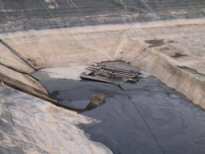
One of the most challenging applications for pump manufacturers is the processing of leachates in industrial waste treatment centres. In Europe, the by-products of industrial production processes, including waste metals, chemicals, contaminated sludges and even nuclear waste, form giant industrial waste mountains that have to be carefully treated before they are safe enough to be sent to landfill. However, these toxic waste mountains are not the only polluted substance that need attention at dedicated treatment centres.
Rain water percolates through the industrial waste mountains while they are stored and awaiting treatment, generating a toxic run-off liquid, or leachate, that is every bit as polluted and dangerous as the original waste pile. Typically, these liquids are channelled into vast holes dug into the earth to form controlled basins. The 1999 European Directive relating to the Dumping of Waste, sets out strict criteria for the storage and processing of industrial leachates to ensure that the way they are collected, handled and eventually dumped complies with regulatory requirements.
For these reasons, leachate basins are lined with membranes to stop the polluted water from penetrating the ground and entering the water table. This solution creates large chemical baths that offer a highly inhospitable environment for the pumps that are used to process the liquid. The pumps selected have to be suspended 30cm above the membrane so as to avoid suction on the membrane, which could cause a tear or a hole. They must also be robust enough to need little or no maintenance since regularly accessing pumps for repairs in such a hazardous environment is understandably unpopular with treatment centre owners.
Alain du Petit Thouars, CEO of Tsurumi’s French dealer CE2A, has always had the confidence that Tsurumi pumps were up to the challenge of working with leachates. After the Pollutec Exhibition in Paris in 2001, he put his faith to the test and offered to rent a Tsurumi pump to the owner of France’s third largest company in the waste water treatment industry. “We placed one of our KTZ 3.7kW pumps in a very difficult site where the owner’s experience was that all other pumps had failed after only one week,” explains M. du Petit Thouars. “After 6 months the KTZ33.7 was still running so well that when I asked the owner what he thought of it, he had forgotten it was even there.”
The company, a leader in the field with an annual turnover of €400M was so impressed with the performance of that first Tsurumi pump that they quickly decided to purchase more. They have now been a customer of Tsurumi for over seven years and only use Tsurumi pumps over the whole water treatment facility. Mr. Daniel Weippert, Managing Director of Tsurumi (Europe) GmbH attributes the outstanding performance of the Tsurumi pumps to the high-grade specifications used in the manufacturing process: “The casing of the KTZ range of pumps is made from cast iron rather than aluminium and the impellers are chromium cast iron, both of which are far more resistant to corrosion, making them an ideal choice for the particular stresses of leachate handling.”
Experience in France has shown that the KTZ pumps are particularly well suited to alkaline leachate environments and that maintenance on Tsurumi pumps at French CETs (centres d’enfouissements techniques or waste product treatment centres) is typically very low. This is an important consideration when operating in a toxic environment as minimal handling is clearly the ideal.
Tsurumi pumps continue to hold the dominant position in the French market with CE2A, who works with some of the leading names within the waste water treatment industry including SITA and Veolia Water.
Source: Tsurumi (Europe) GmbH


